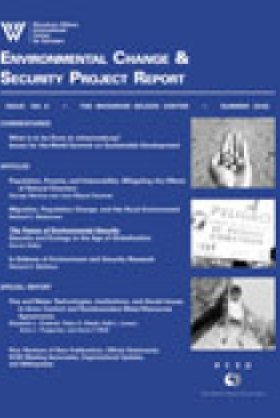Fire & Water: Technologies, Institutions, and Social Issues in Arms Control and Transboundary Water-Resource Agreements



The world of environmental security is bringing the science of natural resources in ever-closer contact with the policy issues of international stability and foreign affairs. Many U.S. and international agencies - including the U.S. Departments of State and Defense, the North Atlantic Treaty Organization, and the Southern African Development Community - now analyze foreign policy in part through the lens of environmental resources. In October 2001, three organizations - the Pacific Institute for Studies in Development, Environment, and Security; the Department of Geosciences of Oregon State University; and the Cooperative Monitoring Center (CMC) at Sandia National Laboratories - sponsored a workshop designed to highlight the closeness of national security and environmental concerns through explicitly comparing the technologies, institutions, and social issues in two seemingly disparate fields: arms control and transboundary water resources. With generous support from the Carnegie Corporation of New York, Fire & Water workshop participants compared and contrasted these two fields and then identified questions for further analysis. Workshop sessions focused on three specific topics: (a) scientific and technological advances, (b) treaties and institutions, and (c) social and cultural issues.



The Environmental Change and Security Program (ECSP) explores the connections between environmental change, health, and population dynamics and their links to conflict, human insecurity, and foreign policy. Read more




